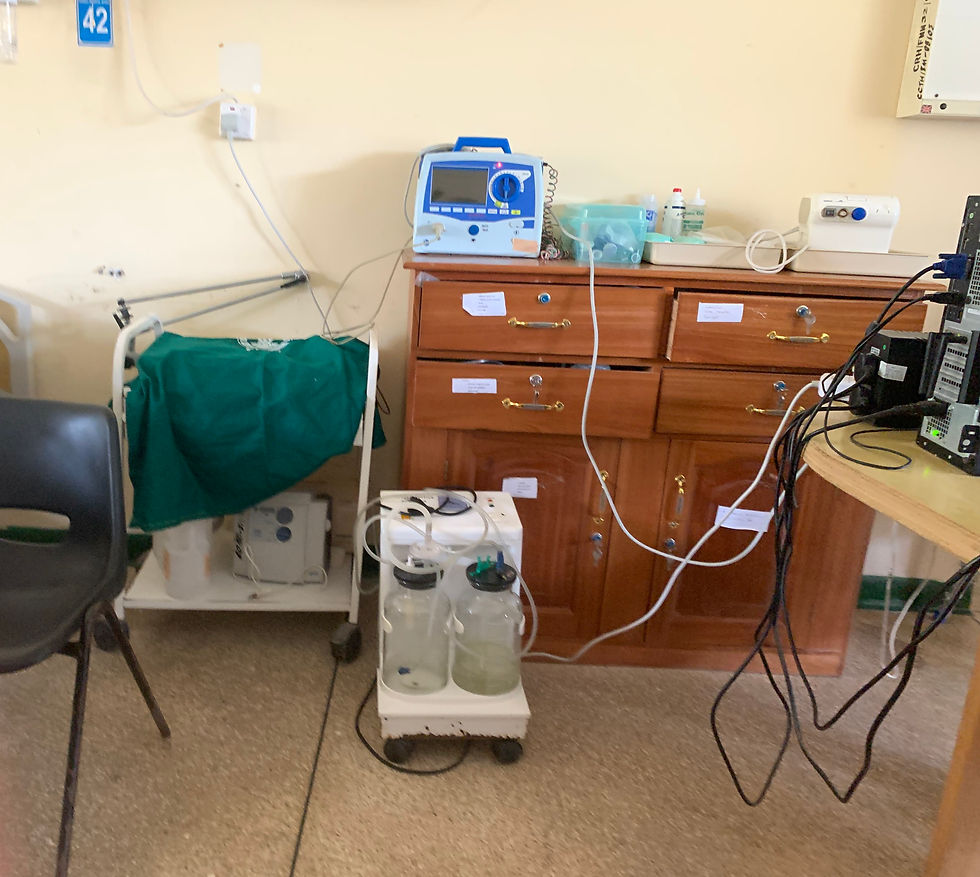Third Week
- Ka'la Drayton
- Feb 22, 2020
- 4 min read
Updated: Mar 8, 2020
Sorry for the delay in this post, my computer crashed due to the motherboard being overheated. That’s right, overheated. That’s brings me to one of the topics that I would like to discuss this week, the climate. Our education coordinator Dominic who provided us with a list of different issues that impact Ghana’s noncommunicable diseases. Such problems are the climate, water, sanitation, food, and trash. One of the first things that I noticed a soon as I arrive to Ghana was the heat. Being from the south specifically South Carolina I thought I was used to 100° weather but I wasn’t used to it without the AC. I never realized how dependent I was on the air-conditioning or something as simple as the fan with consistent electricity. In Ghana, I live in a house that is fairly large but has a fan in every room. It’s very common to walk inside of a room and turn the fan on to be comfortable while you’re there and to always turn it off when you leave. Very different when I have central air conditioning at my home that circulates all the time even when I’m not there. Every morning I find myself drenched in sweat simply walking from the house down to the junction where I take a taxi in the morning before I get to the hospital. But it doesn’t stop there it continues even while I’m in the hospital. Patients are no exemption. There are roughly 4 people who are centered around a ceiling fan with opened windows. Very different from walking into a hospital back home and as soon as you walk in it’s freezing cold. During rounds people are wiping the sweat off of their foreheads as we crowd around our patients to find out what exactly is going on. The heat here in Ghana is something that it’s very hard to describe but a situation that you have to put yourself in to actually be able to understand what I’m talking about. I had to take a moment and actually reflect on how this is actually impacting the health of so many individuals. Aside from the dehydration that one could experience from being in such a hot and humid place but the lack of clean drinking water, also doesn’t make anyone situation any better. Along with the list that I provided prior, sanitation is a major issue. During my morning walk from the house to the junction there is a ditch that lines both sides of the road and it’s filled with mud, trash and animal feces giving it a specific order. Typically one may not think that much about it but, seeing children playing close to the ditch one cannot help but to think about the risk of infection imposed on these kids. All of the different risk factors play hand-in-hand especially when it comes to water, sanitation and food. There are plenty of different vendors down the main road who sell food and one thing in particular is that there is no running water that supplies each of the vendors. They fill buckets of water and use that to prepare different meals. So with no running water how are they able to wash their hands, how are they able to affectively clean different meats and other produce, and how are you sure that the food that you’re giving is to its best quality? At first I was very conscious about this and I was so afraid of getting food from just anywhere but I loosened up just a bit and I have my trusted people that I go to for food if I’m not eating at the canteen. I’m grateful that my experience is just not solely from the hospital but from my social surroundings and with my interactions with different people.
So this week I worked with the Team C on internal medicine and I was able to work with some of the medical students in addition to house-staff members, residents, and specialist. During my week on internal medicine I was able to see a variety of different cases such as a hemorrhagic stroke, Mallory-Weiss tear, cirrhosis, spontaneous bacterial peritonitis and HIV encephalopathy. During my downtime I found myself missing my friends that I made while on my OB/GYN rotation. So I found my way back to ETAT team and helped out my friend Edwin during emergency cases. I saw a few patients while he handled some floor work and I was able to correctly diagnose and treat those women. While I was doing that little did I know, in the next room they were setting up to do a tubal ligation. So I was called in the room and their on the table was a woman who was about to get her tubes tied only under local anesthesia and sedatives. I was shocked! I stood there and I was thinking about texting my best friend who is an OB/GYN resident and asking do we do this in the states. I stood there shocked and amazed at how quickly they were able to just find the fallopian tubes, tied them and close her back up like it was nothing. I was only accustomed to doing such procedure in an operating room with the right supplies especially if an emergency occurred and never did I think that it would just be done in a small room crowded with six people with two iPhones providing light. WOW. I only have one more week and I’m excited to see what the next week brings. Until next time peeps. ✌🏾




Comments